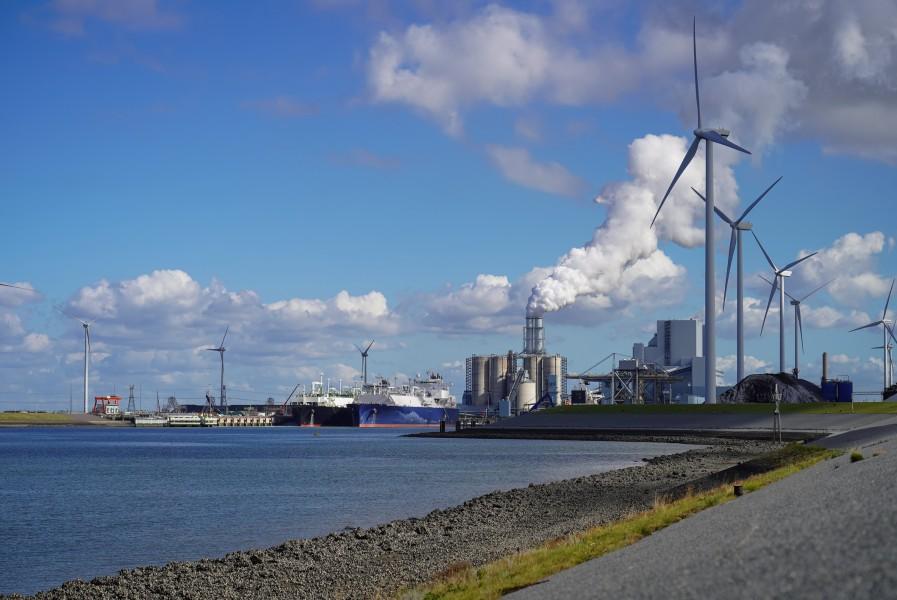Zipped out to the Tetons for a little altitude this long weekend. Dusted off an anecdote from 2018 about magic, mysteries, the sublime wonder all around (see below). Wishing you all the very best, E
Marcel Kasumovich, Deputy CIO of One River Digital, published a fantastic piece this week on the SEC’s custody proposal which most had expected to be a digital kill switch, but in the end was something else [click here].
Week-in-Review: Mon: China says US balloons have trespassed their airspace 10x since Jan 2022, NY Fed 1y inflation expectations steady at 5%, US’s Blinken may meet China’s Wang this week, Fed’s Bowman says far from achieving price stability, ECB’s Centeno says infl going down faster than exp, Moody’s noted growth risks in South Africa amid ongoing power crisis, US gov’t plans to sell 26mn barrels from SPR btwn April-June, Swiss CPI 3.3% (3.1%e), India CPI 6.52% (6%e), S&P +1.1%; Tue: US CPI 6.4% (6.2%e) / Core CPI 5.6% (5.5%e), Ueda officially nominated as BOJ gov, Niki Haley announces 2024 presidential bid, Biden names Fed’s Brainard as top economic advisor, Brazil CB gov Neto vows to bring CB closer to the gov’t but defended the CB’s autonomy and infl target, Fed’s Williams says 5-5.5% fed funds makes sense, Fed's Harker says how far beyond 5% we go is data dependent, ECB’s Makhlouf says more hikes beyond March likely, UK is close to new Brexit deal as Northern Ireland deadlock is resolved, US says the 3 aerial objects shot down likely private (no China link), Australia cons conf 78.5 (84.3p), Japan 4Q GDP 0.6% (2%e), EU 4Q GDP 1.9% as exp, S&P unch; Wed: China keeps 1y MLF rate unch, Turkish stocks restart trading, RBA gov Lowe says inflation is too high and acknowledges a narrow path to bring down infl without damaging the economy, ECB’s Lagarde reiterates intent to hike by 50bp in March, CBO released its budget outlook through 2033 – 1.4T deficit in 2023 / says debt ceiling x-date between July and Sept, UK CPI 10.1% (10.3%e) / Core CPI 5.8% (6.2%e) / RPI 13.4% (13.2%e), UK House Prices 9.8% (9.2%e), EU trade bal -18.1b (-16b exp), US empire mfg -5.8 (-18e), US ret sales 3% (2%e) / Control group 1.7% (1%e), US IP 0% MoM (0.5%e), US NAHB housing mkt index 42 (37e), S&P +0.3%; Thu: Philippine CB hikes 50bp as exp, Indonesia CB unch as exp, Fed’s Mester saw compelling case for 50bp hike at last mtg, Bullard advocated for 50bp, SEC to sue company behind Terra stablecoin, BOJ announces increase in repo cost for borrowing 3 on the run 10y JGBs to dissuade speculative short positions, ECB’s Lane says much of the policy impact is still in the pipeline, ECB’s Nagel says policy isn’t restrictive yet, ECB’s Panetta says raising in small increments allows for more honed adjustments, China’s top diplomat Wang Yi pushed France to boost cooperation on tech issues (countering US led opposition), BoC’s Macklem reiterated intent to keep policy rate unch despite the strong jobs report, Japan core machine orders -6.6% (-6.1%e), Australia emp change -11.5k (20k exp) / unemp 3.7% (3.5%e), Turkey house prices 167.78% (174.52%p), Brazil eco activity 1.42% (1.40%e), US PPI 6% (5.4%e) / Core PPI 5.4% (4.9%e), US housing starts -4.5% MoM ( -1.9%e), US init jobless claims 194k (200k exp), US Philly Fed outlook -24.3 (-7.5e), NY Fed business activity -12.8 (-17e), S&P -1.4%; Fri: ECB’s Schnabel says hard to assess whether policy is already restrictive, EU Gas prices below 50/mwh for first time in ~17m, PBOC offers the largest 1d addition via it 7-day repo operation (stimulative), BOE’s Pill signals pace of hikes to slow, Fed’s Bowman says needs to keep hiking to cool inflation, Singapore non-oil expts -25% (-21.9%e), Germany PPI 17.8% (21.6%p), UK ret sales -5.1% (-5.6%e) / Core -5.3% (-5.4%e), Sweden unemp 7.3% (7.5%e), EU Current acct bal 15.9b (12.8b prev), Poland PPI 9.9% (10.6%p), US impt prices 0.8% (1.4%e), US leading index -0.3% as exp, S&P -0.3%.
Weekly Close: S&P 500 -0.3% and VIX -0.51 at +20.02. Nikkei -0.6%, Shanghai -1.1%, Euro Stoxx +1.4%, Bovespa +1.0%, MSCI World -0.1%, and MSCI Emerging -1.4%. USD rose +2.7% vs Russia, +2.1% vs Yen, +1.1% vs South Africa, +1.0% vs Canada, +0.8% vs China, +0.6% vs Australia, +0.5% vs Indonesia, +0.4% vs India, +0.2% vs Sterling, and +0.1% vs Turkey. USD fell -9.5% vs Bitcoin, -8.1% vs Ethereum, -1.6% vs Mexico, -1.0% vs Chile, -1.0% vs Brazil, -0.2% vs Euro, and -0.1% vs Sweden. Gold -1.3%, Silver -1.8%, Oil -4.2%, Copper +1.8%, Iron Ore +1.5%, Corn -0.1%. 10yr Inflation Breakevens (EU +7bps at 2.32%, US +3bps at 2.37%, JP -1bp at 0.70%, and UK -4bps at 3.49%). 2yr Notes +10bps at 4.62% and 10yr Notes +8bps at 3.82%.
Year-to-Date Equities (high to low): Greece +18.2% priced in US dollars (+18.6% priced in euros), Czech Republic +18.2% priced in US dollars (+16.4% priced in koruna), Mexico +17.7% priced in US dollars (+11% in pesos), Italy +16.7% in dollars (+17.1% in euros), Ireland +15.3% (+15.6%), France +13.2% (+13.5%), Spain +13.1% (+13.4%), Argentina +13% (+23.2%), NASDAQ +12.6%, Euro Stoxx 50 +12.4% (+12.7%), Austria +11.5% (+11.8%), Germany +10.9% (+11.2%), Netherlands +10.7% (+11%), Taiwan +10.6% (+9.5%), Russell +10.5%, Sweden +9.5% (+10.1%), Chile +9% (+1.3%), Hungary +7.9% (+4.2%), MSCI World +6.8% priced in US dollars, Korea +6.8% (+9.6%), UK +6.7% (+7.4%), S&P 500 +6.2%, Canada +6.2% (+5.8%), Belgium +5.6% (+5.9%), Australia +5.1% (+4.4%), China +4.8% (+4.4%), Denmark +4.5% (+5%), Switzerland +4.4% (+4.9%), HK +4.2% (+4.7%), Philippines +4% (+3.2%), New Zealand +3.9% (+5.9%), Finland +3.8% (+4.1%), South Africa +3.1% (+9.4%), Poland +3.1% (+5.2%), Japan +2.9% (+5.4%), Indonesia +2.8% (+0.7%), Singapore +2.5% (+2.4%), Brazil +1.8% (-0.5%), Saudi Arabia +0.9% (+0.7%), Portugal +0.6% (+0.9%), Israel -0.3% (+0.5%), Russia -0.3% (+0.7%), Thailand -0.5% (-1%), India -1% (-0.9%), Malaysia -1.8% (-1.2%), UAE -2.3% (-2.3%), Norway -2.5% (+2.4%), Venezuela -6.6% (+33%), Colombia -6.9% (-5.9%), Turkey -9.5% (-8.8%).
Anecdote (Sept 2018): “I’m fortunate to live in a time where the political system allows my kind of work,” said the Physicist. “Historically, it’s not always so.” Below us particles raced around CERN’s 27km subterranean track, held in precise formation, accelerating toward collision, obliteration, observation. We discussed magic, mysteries, the sublime wonder all around. “It’s incredible that we’ve been able to learn so much about nature, and that the language of mathematics turns out to be so effective in describing it,” he said. I smiled, having never quite considered that fact. “We’re now trying to produce a substance found throughout the universe that interacts with gravity but not light,” he explained. “But so far, no success.” The existence of Dark Matter was first hypothesized in the 1930s, we’ve searched ever since. It accounts for 95% of the Universe’s mass. The Physicist asked me about markets, intrigued by their movements, mechanics. There are parallels with quantum theory. Investor perceptions impact markets, which in turn changes investor perceptions in a reflexive loop that grows highly unpredictable in the extreme. The greatest opportunities in markets often reveal themselves first as mysterious phenomena. When markets move in opposition to general principles, it often means that something fundamental is changing. Reality is always changing. Our job as investors is to identify shifts early and adjust our frameworks accordingly. I asked the Physicist to explain the mystery that confounded Einstein and every physicist since: Quantum Entanglement. “I can understand the equations that describe it. But I’m intuitively mystified by the phenomenon,” he admitted. “In my field of work, I’m astonished often. And each time, I’m reminded that what we know about reality fits within perhaps 5% of all there is. And when you know so little about something so vast, it’s impossible to be certain whether what you believe you know is even reality.”
Good luck out there,
Eric Peters
Chief Investment Officer
One River Asset Management
Disclaimer: All characters and events contained herein are entirely fictional. Even those things that appear based on real people and actual events are products of the author’s imagination. Any similarity is merely coincidental. The numbers are unreliable. The statistics too. Consequently, this message does not contain any investment recommendation, advice, or solicitation of any sort for any product, fund or service. The views expressed are strictly those of the author, even if often times they are not actually views held by the author, or directly contradict those views genuinely held by the author. And the views may certainly differ from those of any firm or person that the author may advise, converse with, or otherwise be associated with. Lastly, any inappropriate language, innuendo or dark humor contained herein is not specifically intended to offend the reader. And besides, nothing could possibly be more offensive than the real-life actions of the inept policy makers, corrupt elected leaders and short, paranoid dictators who infest our little planet. Yet we suffer their indignities every day. Oh yeah, past performance is not indicative of future returns.





